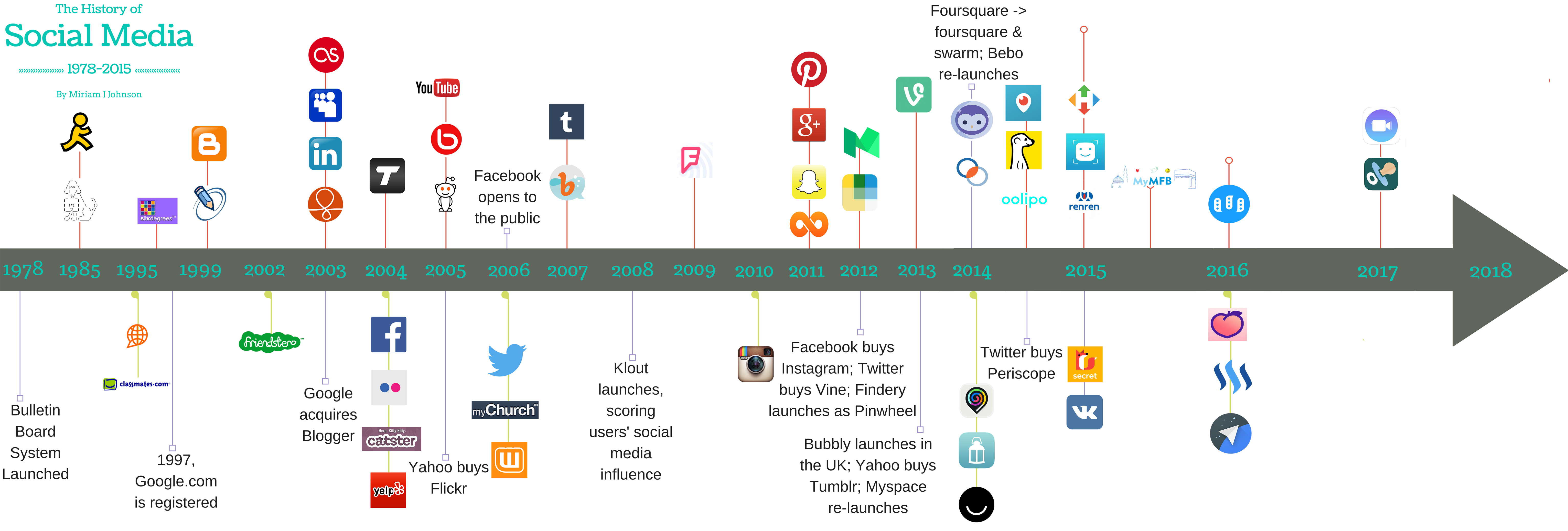Social Media

The concept of social media platforms has roots in the early development of computer networking and the Internet. Here’s a brief overview of how the idea of social media platforms started: 1. Early Computer Networking: In the 1960s and 1970s, the groundwork for computer networking was laid through the creation of ARPANET (Advanced Research Projects Agency Network), a precursor to the modern internet. 2. Bulletin Board Systems (BBS): In the late 1970s and throughout the 1980s, BBS emerged as a form of computer-mediated communication. This system was a text-based platform that allowed users to post messages, share files. 3. Online Communities: In the 1980s and 1990s, online communities started to form on platforms such as Usenet, which enabled users to participate in newsgroups dedicated to specific interests or topics. 4. SixDegrees.com: In 1997, Six Degrees was launched as one of the earliest social networking websites. Which allowed users to create profiles and connect with others, forming a network of friends. Although it shut down in 2001 was kind of a foundation for social media platforms. 5. Friendster and Myspace: Friendster, launched in 2002, and Myspace, launched in 2003, were among the first widely successful social networking platforms. They introduced features like customizable user profiles, friend connections, and the ability to share media and content. 6. Facebook: I believe that everybody knows the story behind this social media platform which was launched in 2004 by Mark Zuckerberg and after a short period of time in 2006 it opened to the general public in 2006. 7. Twitter: Twitter was launched in 2006 and introduced the concept of microblogging, allowing users to post short messages called ‘tweets. 8. Subsequent Platforms: These social media platforms brought their own unique features and focus. Platforms like LinkedIn (professional networking), Instagram (photo sharing), Snapchat (ephemeral content), and TikTok (short-form videos) have gained significant popularity in recent years. And the list is so long like Clubhouse, YouTube, Telegram and so many other platforms, and ongoing with new ideas. However not all of them are successful, so in the following, there are several factors that contribute to the success of a social media platform. 1. User-Friendly Interface 2. Unique Value Proposition 3. Engaging Content 4. Active and Growing User Base 5. Privacy and Security 6. Mobile Accessibility 7. Innovation and Adaptability 8. Monetization Opportunities 9. Community and User Engagement 10. Marketing and Branding It's important to note that the success of a social media platform is influenced by a combination of these factors, and each platform may prioritize them differently based on its unique value proposition and target audience. These are some tips for building a successful social media platform: 1. Identify a Unique Niche or Target Audience 2. Offer a Unique Value Proposition 3. Create a User-Friendly Interface 4. Foster Community and Engagement 5. Focus on Privacy and Security 6. Continual Innovation and Adaptation 7. Listen to User Feedback I believe that in the near future, there would be a new social media platform with new features which will make it successful.